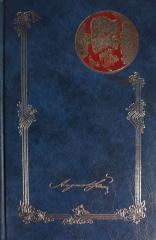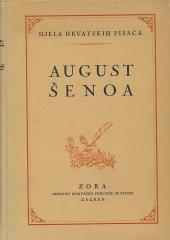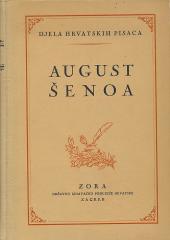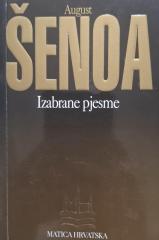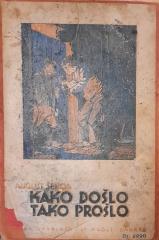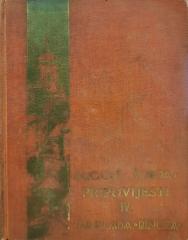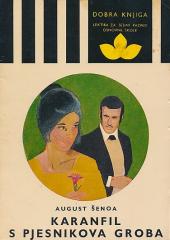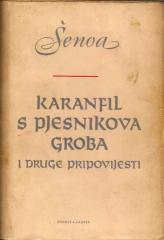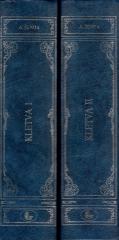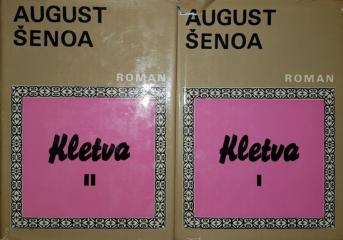August Šenoa
August Šenoa (14. studenoga 1838. – 13. prosinca 1881.) bio je jedan od najznačajnijih hrvatskih književnika 19. stoljeća i utemeljitelj moderne hrvatske književnosti. Rođen je u Zagrebu, školovao se u Pragu, a nakon povratka u domovinu radio je kao novinar, urednik i gradski bilježnik. Njegov rad imao je velik utjecaj na kulturni život tadašnje Hrvatske.
Šenoa je najpoznatiji po povijesnim romanima koji kombiniraju romantične, realističke i nacionalne elemente, poput Zlatarevo zlato (1871), Čuvaj se senjske ruke, Seljačka buna i Diogenes. U tim djelima uspješno je rekonstruirao hrvatsku povijest i ujedno promicao domoljublje, moralne vrijednosti i društvenu odgovornost.
Pisao je i pripovijetke, pjesme, kritike i feljtone, te uređivao časopis Vijenac, preko kojeg je oblikovao književne i kulturne tokove. Posebno je značajan njegov jezični doprinos – zalagao se za standardizaciju hrvatskog jezika i njegovo obogaćivanje književnim izrazom.
Umro je mlad, u 43. godini, nakon što je obolio pomažući unesrećenima tijekom velike zagrebačke poplave 1880. godine. Njegov književni i kulturni utjecaj ostaje trajan temelj hrvatske književnosti.
Titles in our offer
Djela Augusta Šenoe - Zlatarovo Zlato
Prvi hrvatski povijesni roman - najzagrebačkija od svih priča. Priča je to o zabranjenoj ljubavi zlatarove kćeri i plemićeva sina na povijesnoj pozornici zagrebačkih ulica i trgova šesnaestog stoljeća.
Djela I. svezak
Pjesme, Članci i feljtoni, pisma, dnevnik, slikovni prilozi
Djela IV. svezak
Pripovijesti, slikovni prilozi
Izabrane pjesme
Kako došlo, tako prošlo
Karamfil sa pjesnikova groba / Pruski kralj / Turci idu / U akvariju
Sabrana djela Augusta Šenoe, knjiga VI.
Karanfil s pjesnikova groba
Karanfil s pjesnikova groba i druge pripovijesti
Kletva 1-2
Die Geschichte spielt im mittelalterlichen Zagreb und handelt vom Konflikt zwischen Liebe und grausamer Gerechtigkeit. Die Geschichte handelt von einem jungen Mädchen, Janja, dessen geliebter Jurko zu Unrecht verurteilt und hingerichtet wird, weil ihm die
